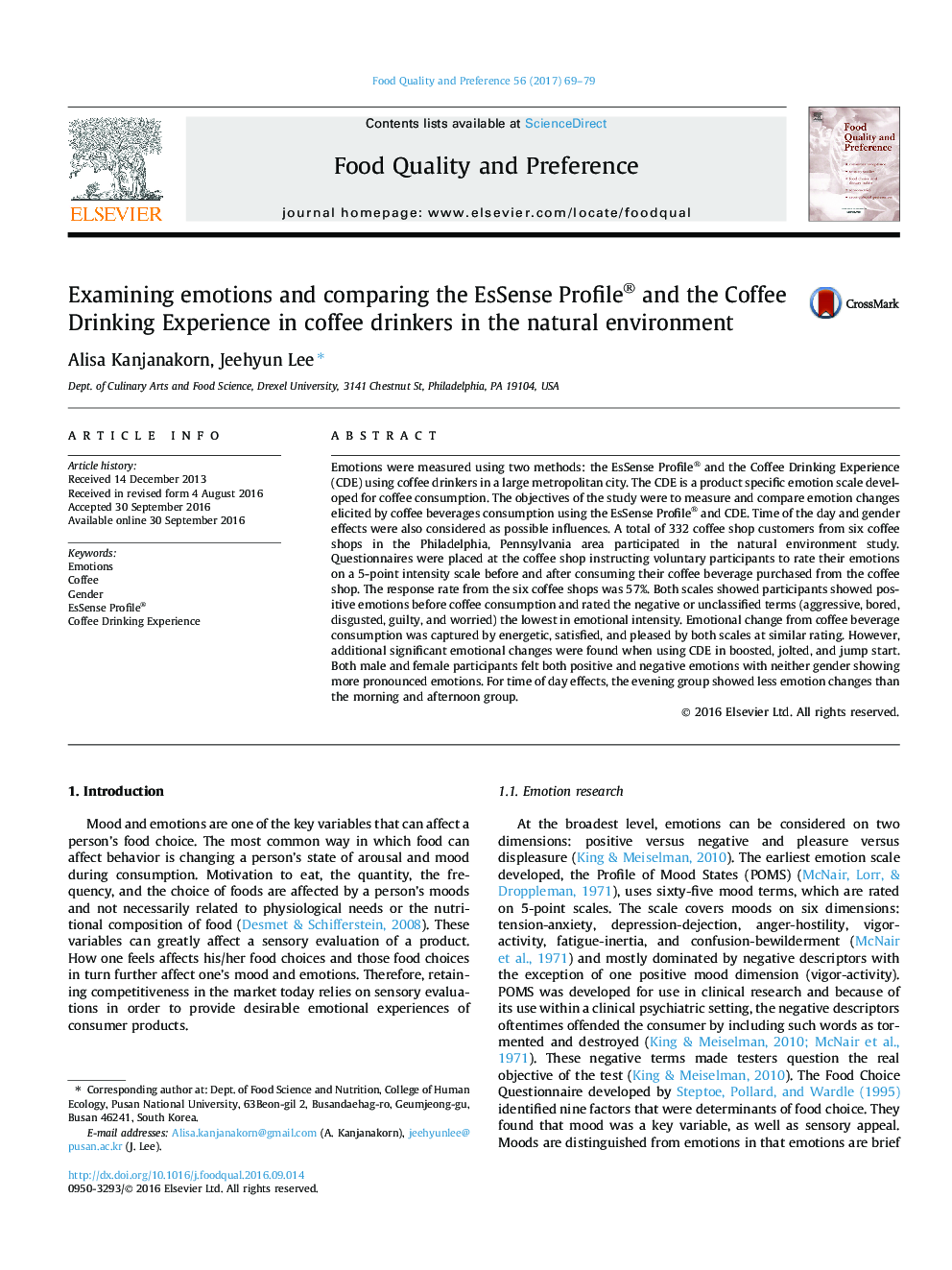| Article ID | Journal | Published Year | Pages | File Type |
|---|---|---|---|---|
| 4316829 | Food Quality and Preference | 2017 | 11 Pages |
•Coffee drinking emotion changes were evaluated using two emotion questionnaires, EsSense Profile® and Coffee Drinking Experience (CDE).•Voluntary customers from coffee shops rated emotions pre and post consumption.•EsSense Profile® and product specifically developed questionnaire (CDE) provided similar results of emotion changes for common terms.•EsSense Profile® did not capture influence of coffee that was captured as jump-start, jolted, and boosted by CDE.
Emotions were measured using two methods: the EsSense Profile® and the Coffee Drinking Experience (CDE) using coffee drinkers in a large metropolitan city. The CDE is a product specific emotion scale developed for coffee consumption. The objectives of the study were to measure and compare emotion changes elicited by coffee beverages consumption using the EsSense Profile® and CDE. Time of the day and gender effects were also considered as possible influences. A total of 332 coffee shop customers from six coffee shops in the Philadelphia, Pennsylvania area participated in the natural environment study. Questionnaires were placed at the coffee shop instructing voluntary participants to rate their emotions on a 5-point intensity scale before and after consuming their coffee beverage purchased from the coffee shop. The response rate from the six coffee shops was 57%. Both scales showed participants showed positive emotions before coffee consumption and rated the negative or unclassified terms (aggressive, bored, disgusted, guilty, and worried) the lowest in emotional intensity. Emotional change from coffee beverage consumption was captured by energetic, satisfied, and pleased by both scales at similar rating. However, additional significant emotional changes were found when using CDE in boosted, jolted, and jump start. Both male and female participants felt both positive and negative emotions with neither gender showing more pronounced emotions. For time of day effects, the evening group showed less emotion changes than the morning and afternoon group.
